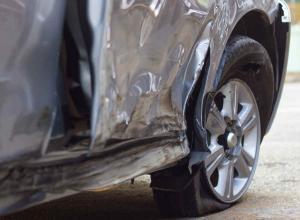
Call Us 24/7 For A Free Legal Consultation






Punitive damages are a type of damages awarded by a judge or jury that do not compensate you for your injuries but punish the defendant for their actions or wrongdoing. So, they are damages that go beyond what is necessary to make the plaintiff or injured party whole. They are extra damages that an injured party would need to prove with a higher burden of proof. The main purpose of personal injury law is to put the injured victim back into the same position he or she was before the accident.

Injured plaintiffs provided evidence normally to a jury and a jury would award damages for economic losses and non-economic losses like pain and suffering, loss of enjoyment of life, mental and emotional distress, lost wages, etc. However, when one seeks to recover punitive damages, one is seeking to punish a defendant or wrongdoer for their “egregious” conduct in causing the injury to the plaintiff or injured party.
The general purpose of punitive damages is more to punish the defendant than to award extra compensation to the injured party. Punitive damages act as a deterrent and prevent other people from acting in the same way as the defendant. Thus, these type of damages are designed to deter others from committing the same egregious act to someone else. This is called a deterrent effect and and these extra damages can go a long way in preventing other individuals or corporations from committing similar egregious acts.
In most states, a defendant or wrongdoer must act willfully, recklessly and wantonly in order to be guilty of conduct arising to the high standard necessary to meet a punitive damages level. In some cases, it is difficult to prove that a defendant acted in such an egregious manner so a judge or jury will not always award these very specific type of damages.
It is rare for an injured party to be able to prove such reckless conduct which would reach a level to award punitive damages. Most injured victims are able to prove that the other party was “negligent”. Negligence is an easier standard to prove and just requires that one prove that the other person was not exercising a reasonable degree of care during the incident (the reasonable degree of care that a reasonable person under the circumstances would exercise).
We serve clients injured anywhere throughout the state of Colorado, but we focus on residents of these areas: Colorado Springs, Manitou Springs, Fountain, Briargate, Monument, Black Forest, Pueblo, Canon City, Larkspur, Security-Widefield, Peyton, Castle Rock, Teller County, El Paso County, Elbert County, Park County, Douglas County and beyond.
Consultations are always free and available 24/7 over the phone.